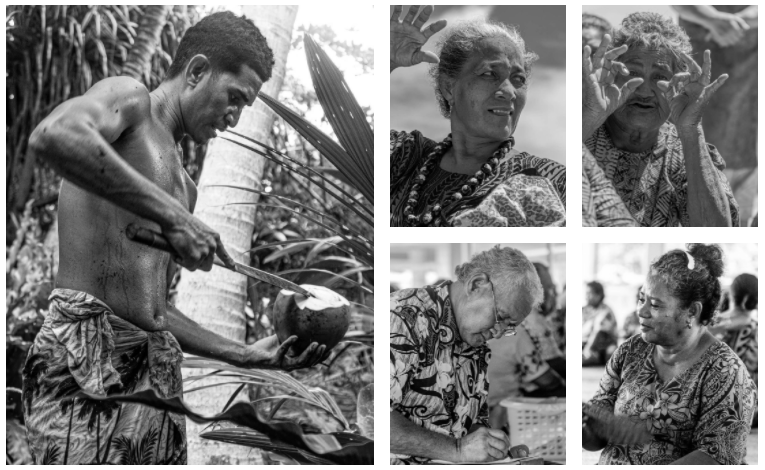The People
Population Growth
As of June, the current population of Tuvalu is 11,926. Demonstrated by the figure above, there has been evident steady population growth, an estimated growth rate of 0.85%, however, this growth is combated with high levels of Tuvaluans migrating when older for educational and occupational opportunities. This is supported by the median age being 26.6 years, 25.6 years male and 27.6 years female.
Languages
Tuvaluan (official), English (official), Samoan, Kiribati (on the island of Nui)
Age structure
The figure below is the population pyramid for Tuvalu. A population pyramid illustrates the age and sex structure of a country’s population and may provide insights about political and social stability, as well as economic development. The population is distributed along the horizontal axis, with males shown on the left and females on the right. The male and female populations are broken down into 5-year age groups represented as horizontal bars along the vertical axis, with the youngest age groups at the bottom and the oldest at the top. The shape of the population pyramid gradually evolves over time based on fertility, mortality, and international migration trends.
0-14 years: 29.42% (male 1,711/female 1,626)
15-24 years: 17.61% (male 1,031/female 966)
25-54 years: 37.17% (male 2,157/female 2,059)
55-64 years: 9.12% (male 427/female 607)
65 years and over: 6.68% (male 289/female 469) (2020 est.)

population data of the Tuvaluan nation demonstrated by a 'population pyramid'
Population distribution
Over half of the population resides on the atoll of Funafuti.
Infant mortality rate
The nation faces not good infant mortality figures, with a total of 29.52 deaths/1,000 live births, 33.2 deaths/1,000 live births (male) and 25.66 deaths/1,000 live births (female). In comparison to the world, Tuvalu ranks 58th in infant mortality.
Life expectancy at birth
However, when it comes to life expectancy at birth the Tuvaluan nation scores well, with an average of 68.07 years, 65.67 years (male) and 70.59 years (female)
The Culture
Pacific island traditions are commonplace in Tuvaluan culture. This can be seen most prominently in dance performances and the traditional styles of fatele, fakanau, and fakaseasea. Fatele is the traditional dance performed to celebrate leaders, and was performed when Prince William and his wife, the Duchess of Cambridge, officially visited Tuvalu in 2012.
Traditional Values
The Tuvaluan lifestyle has been Westernized to an extent however traditional values continue to dominate Tuvaluan culture. Sunday is seen as a day of rest and church-going for the locals, when visitors are advised to choose activities which do not cause too much disruption. It is customary not to speak foreign language in the presence of a person who does not know it, a further signatory of respect.
For Tuvaluans who migrate away from their homeland they adapt to the common culture of their present geographical location, however retaining symbols of a distinct identity.
"the tuvaluan people are very culturally driven people. they want to stay with the land, alike every other world culture. we have not only a civic but cultural duty and identity to protect it."
Religion
The Tuvaluan people are very religious. With Sunday being known as the day dedicated for church-going and rest. The corresponding graph displays the percentage of Tuvaluans associated with their chosen religion
@Nukufetauans
The Instagram account, @Nukufetauans, is a great platform that captures the Tuvaluan culture in action.

.png)

.png)


.jpg)
